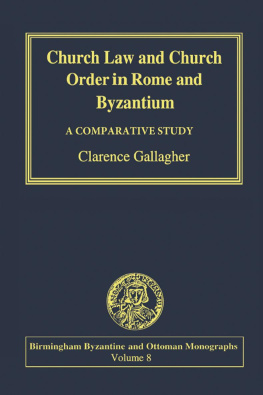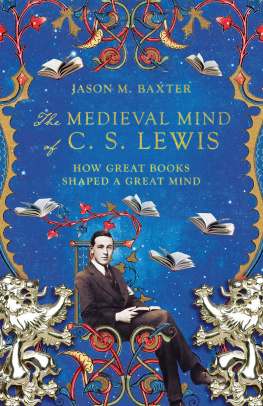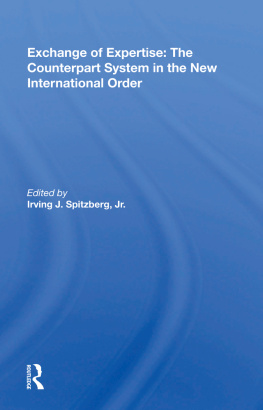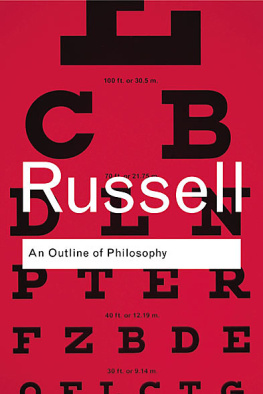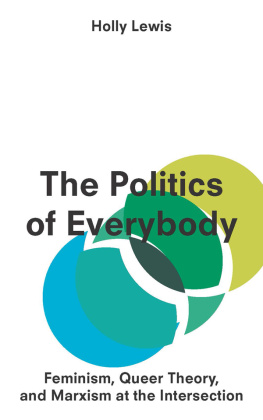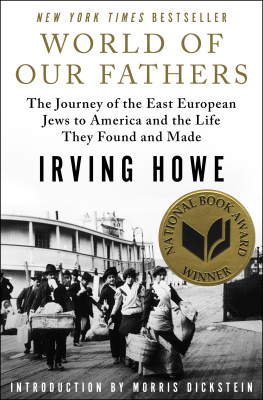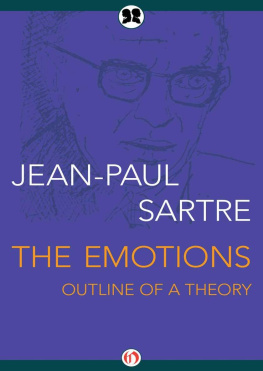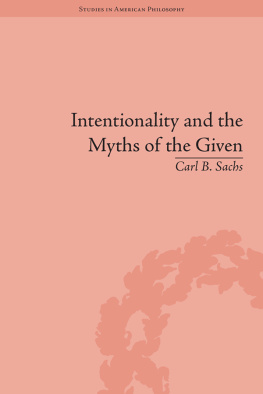Clarence Irving Lewis - Mind and the world-order;: Outline of a theory of knowledge
Here you can read online Clarence Irving Lewis - Mind and the world-order;: Outline of a theory of knowledge full text of the book (entire story) in english for free. Download pdf and epub, get meaning, cover and reviews about this ebook. year: 1929, publisher: C. Scribners Sons, genre: Religion. Description of the work, (preface) as well as reviews are available. Best literature library LitArk.com created for fans of good reading and offers a wide selection of genres:
Romance novel
Science fiction
Adventure
Detective
Science
History
Home and family
Prose
Art
Politics
Computer
Non-fiction
Religion
Business
Children
Humor
Choose a favorite category and find really read worthwhile books. Enjoy immersion in the world of imagination, feel the emotions of the characters or learn something new for yourself, make an fascinating discovery.

- Book:Mind and the world-order;: Outline of a theory of knowledge
- Author:
- Publisher:C. Scribners Sons
- Genre:
- Year:1929
- Rating:3 / 5
- Favourites:Add to favourites
- Your mark:
- 60
- 1
- 2
- 3
- 4
- 5
Mind and the world-order;: Outline of a theory of knowledge: summary, description and annotation
We offer to read an annotation, description, summary or preface (depends on what the author of the book "Mind and the world-order;: Outline of a theory of knowledge" wrote himself). If you haven't found the necessary information about the book — write in the comments, we will try to find it.
Mind and the world-order;: Outline of a theory of knowledge — read online for free the complete book (whole text) full work
Below is the text of the book, divided by pages. System saving the place of the last page read, allows you to conveniently read the book "Mind and the world-order;: Outline of a theory of knowledge" online for free, without having to search again every time where you left off. Put a bookmark, and you can go to the page where you finished reading at any time.
Font size:
Interval:
Bookmark:



COPYRIGHT, 1929, BY CHARLES SCJUBNER'S SONS
Printed in the United States of America

TO M. M. L.
PREFACE
The conceptions presented in this book have grown out of investigations which began in the field of exact logic and its application to mathematics. The historic connection which exists between mathematics and exact science on the one hand and conceptions of knowledge on the other, needs no emphasis: from Plato to the present day, all the major epistemological theories have been dominated by, or formulated in the light of, accompanying conceptions of mathematics. Nor is the reason for this connection far to seek; mathematics, of all human affairs, most clearly exhibits certitude and precision. If only one could come at the basis of this ideal character, the key-conceptions of epistemology might be disclosed- Thus every major discovery of theoretical mathematics, and every fundamental change in the manner in which this subject is conceived, is sure to find its sequel, sooner or later, in epistemology* Whoever has followed the developments in logistic and mathematical theory in the last quarter-century can hardly fail to be convinced that the consequences of these must be revolutionary. It has been demonstrated, with a degree of precision and finality seldom attained, that the certitude of mathematics results from its purely analytic character and its independence of any necessary connection with empirical fact. Its first premises are
neither those self-evident truths of reason which inspired the continental rationalists to imitate the geometric method nor the principles of intuitive construction which, for Kant, assured a basis of application to all possible experience; they are not even empirical generalizations, as Mill and other empiricists have thought. Rather, they are definitions and postulates which exhibit abstract concepts more or less arbitrarily chosen for the purposes of the system in question. Intrinsic connection with experience is tenuous or lacking.
Concurrently, developments in physical science, such as the theory of relativity, have emphasized the fact that, here too, abstractness and systematic precision go together, and that exact deductive procedures may give rise to no corresponding certainty about empirical nature. Logical integrity and concrete applicability are quite separate matters. The empirical truth of geometry even is not assured by its absolute validity as a deductive system, nor by any intuition of space, but depends upon further considerations. The nature of these is not wholly clear, but it is evident that observation and the results of experiment must play some part in the determination of them. Thus the analytic character and abstractness of exact systems, which assure to them that kind of certainty which they have, tend to divorce them from that empirical truth which is the object of natural science and the content of our possible knowledge of nature.
PREFACE
IX
We stand to-day so close to these developments that the far-reaching consequences of them may fail to impress us. It is not merely a change in one or two narrowly restricted disciplines at the farthest remove from direct study of natural phenomena : whatever affects the basic subjects, such as mathematics and physics, is bound to be reflected eventually throughout the whole of science* As a fact, this altered point of view is rapidly extending to other branches, and the independence of the conceptual and the empirical is coming to be accepted as a commonplace. It is not too much to say, I think, that it becomes a matter of doubt whether the structure science builds is solidly based upon the earth, or is a mansion in some Platonic heaven, or is only a kind of castle in the air. At least it appears that we must accept a kind of double-truth: there are the certainties, such as those of mathematics, which concern directly only what is abstract; and there are the presentations of our sense-experience to which we seek to apply them, but with a resultant empirical truth which may be no more than probable. The nature and validity of such empirical knowledge becomes the crucial issue. Traditional grounds of a priori truth have been, perforce, abandoned. What other grounds there may be; or whether without the a priori there can be any truth at all, must constitute our problem.
So far as this is the case, the outstanding ques
tions concern the nature of our abstract concepts, such as those which figure in mathematics and theoretical physics, and the relation of them to concrete experience and to reality. Upon these points, the implications of current scientific developments are nothing like so clear. If I could hope that I read these aright, and that something is here done toward rendering them explicit and consistent, I should, of course, be more than satisfied.
The construction here attempted turns principally upon three theses: (1) A priori truth is definitive in nature and rises exclusively from the analysis of concepts. That reality may be delimited a priori, is due, not to forms of intuition or categories which confine the content of experience, but simply to the fact that whatever is denominated "real" must be something discriminated in experience by criteria which are antecedently determined. () While the delineation of concepts is a priori, the application of any particular concept to particular given experience is hypothetical; the choice of conceptual systems for such application is instrumental or pragmatic, and empirical truth is never more than probable. (3) That experience in general is such as to be capable of conceptual interpretation, requires no peculiar and metaphysical assumption about the conformity of experience to the mind or its categories; it could not conceivably be otherwise. If this last
PREFACE
XI
statement is a tautology, then at least it must be true, and the assertion of a tautology is significant if it is supposed that it can be significantly denied. The development of these three theses will be found principally in Chapters III, VTII, and XI.
Since this point of view will be likely to acquire some sort of label in any case, I shall venture to give it one myself and call it "conceptualistic pragmatism." Without the earlier conceptions of Peirce, James, and Deweyespecially Peirceit would probably not have been developed. But these more orthodox pragmatists should not, of course, be made responsible for this view as a whole nor, particularly, for the doctrine of a priori truth which is included.
In writing the book, I encountered a considerable difficulty of exposition: with whatever one of its theses I should begin, the others would be more or less anticipated. In view of this difficulty, I have endeavored to keep the presentation as compact and swift as was compatible with clearness and proper emphasis. Controversial issues have been neglected except so far as discussion of them would contribute to the main development. And matters which lay to one side of the central theme but were still too important to be omitted altogether, have been covered briefly in appendices.
To the graduate students in my seminary in the theory of knowledge in the last six years, my thanks are due for their critical discussion of these
Font size:
Interval:
Bookmark:
Similar books «Mind and the world-order;: Outline of a theory of knowledge»
Look at similar books to Mind and the world-order;: Outline of a theory of knowledge. We have selected literature similar in name and meaning in the hope of providing readers with more options to find new, interesting, not yet read works.
Discussion, reviews of the book Mind and the world-order;: Outline of a theory of knowledge and just readers' own opinions. Leave your comments, write what you think about the work, its meaning or the main characters. Specify what exactly you liked and what you didn't like, and why you think so.

